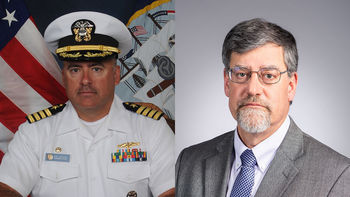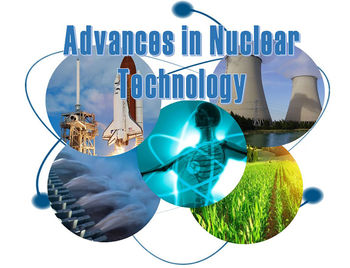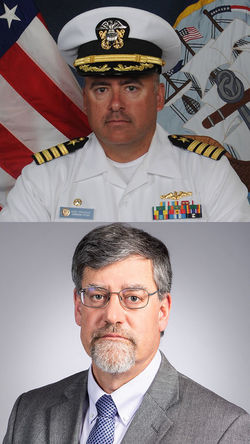
Accidents involving nuclear materials have been few and far between, yet their stories have remained etched in history, leading to misinformation and disagreements, especially among policymakers and the public, about their use. The good news is that researchers have learned from these incidents and are leading the way toward the next-generation of nuclear power and life-sustaining technologies.

In this four-part series, participants will learn about the many ways nuclear is being used to generate power, preserve human health, and support universal discoveries. Speakers will delve into topics surrounding research and development and some of the hard questions about environmental and intergenerational justice, including:
- Is nuclear power the only means for reducing carbon emissions quickly enough to prevent catastrophic climate change?
- How do we sort through fact and fiction, ethical and moral imperatives, and social and economic consequences when making policy decisions?
- Beyond power, how is nuclear science saving lives, solving mysteries from our past, and building a future for the next-generation of scientists, leaders, and decision-makers?
Please join ND Energy on Wednesday, March 3, at 7:00 p.m. (EST) for the final discussions that will enlighten participants on the many ways nuclear technology is used to sustain our future.

Registration is required by 5:00 p.m. (EST) the day of the talk to receive a Zoom link to join. This series is open to the Notre Dame community and general public.

Advances in Nuclear Technology Part Four: “Beyond the Nuclear Power Plant”
by Captain Mark Prokopius, professor of Naval Science, University of Notre Dame; and J. David Robertson, professor of Chemistry and director of MU Research Reactor (MURR), University of Missouri
Advances in nuclear science go far beyond producing power. Nuclear materials are used in diagnosing and treating illness using radiopharmaceuticals. A positron emission tomography (PET) scan enables specialists to view the body at a cellular and molecular level. Nuclear forensics helps identify the source of nuclear materials as an important component of national security. Atomic batteries have extremely long life spans and high energy density, making them very useful in submarines, space crafts, and pacemakers. There are also nuclear energy applications in art and archaeology.
A panel of professionals will complete this four-part series on advances in nuclear technology with an examination of the various advancements and career opportunities in the field of nuclear science. Their expertise and insights will reinforce the topics featured in Part One: "Fact, Fiction, and the Future" by Peter C. Burns, Part Two: “A Moral Imperative” by Don Howard, and Part Three: “A Case Study in Puerto Rico” by Jesus Nunez, Valerie Lugo, and Ramón Martinez.
Prokopius (’90) is a professor of naval science and senior commanding officer in Notre Dame’s Navy ROTC. After receiving his commission through the Naval Reserve Officers’ Training Corps at Notre Dame in 1990, he received nuclear training and extensive experience from the U.S. Navy. He has served aboard and commanded an array of submarines and a submarine tender in a variety of positions and received many meritorious and commendation awards for his service. His most recent deployments were as Commanding Officer of USS Emory S. Land and as Special Projects Staff Officer with the Submarine Force Atlantic. Prokopius holds a bachelor of science in electrical engineering from the University of Notre Dame and a masters in engineering management from Old Dominion University.
Robertson is a chemistry professor at the University of Missouri and director of the MU Research Reactor (MURR). His research focuses on radiochemistry, nuclear chemistry, and analytical chemistry with broad applications for neurological disorders, environmental science, and archaeology. He is a Fellow of the American Chemical Society (ACS), University of Missouri 2006 William H. Byler Distinguished Professor, director of the ACS National Nuclear Chemistry Summer School, and chair of the ACS Division of Nuclear Chemistry and Technology. Robertson earned his B.S. from the University of Missouri and his Ph.D. from the University of Maryland.
For questions or more information, please contact Anne Berges Pillai at apillai@nd.edu.
Sponsored by ND Energy and the Notre Dame Puerto Rican Student Association
Originally published at energy.nd.edu.